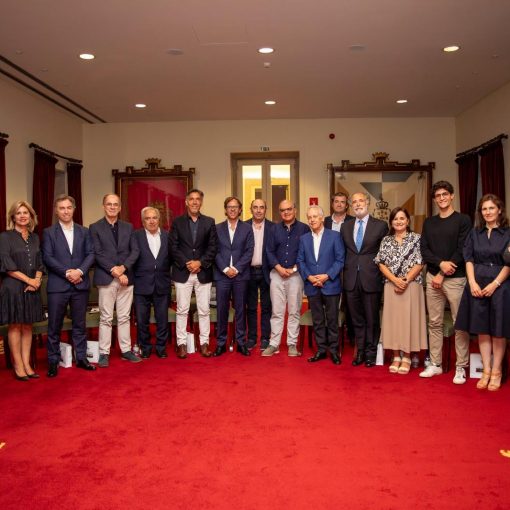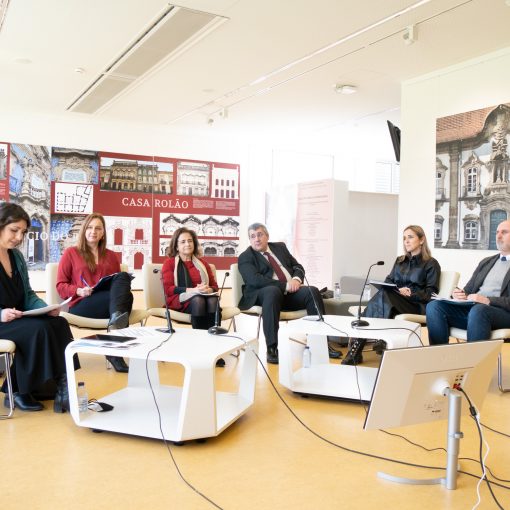It’s already the third edition and it will continue to be a tradition for the aerospace engineering programme.
The first lecture to mark the start of the academic year once again had a special guest.
Carlos Batalha, a Colonel in the Air Force, spoke about the transformation that is taking place in that force due to the equipment, the technologies that are used, the way of acting and the use of space by men and machines. An informative lesson that aroused the curiosity of around 100 students who occupied the classroom for more than an hour and a half, in a universe where there are already around 40 per cent women.
In Carlos Batalha’s talk, there was no shortage of explanatory references to the current war – Israel’s in Gaza and Russia’s in Ukraine, more from the point of view of the weapons used and the type of aeroplanes, highlighting each country’s capacity in these conflicts. The colonel, who enthused the audience with whom he engaged in dialogue and answered questions, spoke of the military as ‘managers of organised violence, whose mission is to destroy and kill’.
He spoke about military tactics, because there are secrets to be kept. He highlighted the country’s military capacity, the missions that are carried out in the alliances to which we belong, such as in the defence of Europe with NATO, with peacekeeping through the UN and internally with aid to populations in catastrophic situations. It has signalled how to annihilate or condition electrical infrastructures in certain missions. The total destruction of a power station or its temporary disabling by a blackout caused by carbon fibre that only interrupts the energy supply.
He explained to the aerospace engineering students the ‘flight plan’ for the transformation of the Air Force for the defence of national territory or participation in international missions. He also discussed the use of space for purposes other than war and aggression, the role of satellites in information, GPS and space observation, and interoperability processes in the use of equipment. He also considered the submarine to be the most lethal piece of equipment in a war situation because nobody knows where it is or where it appears. But he returned to the air and talked about the F16 and F35 fighter jets – the current craze – in a panoply of flying machines that have undergone a huge evolution in the last 50 years.
Of spies and espionage, a reference to the mistake made by Westerners when they thought that Russia could belong to NATO. And, for a while, ‘Russia was inside the organisation, sharing and receiving information about strategy, equipment and who knows what else’, a period in which meddling was by invitation, but it soon became clear that Russia didn’t want to belong to NATO.
Colonel Carlos Batalha spoke about the business of war and the equipment of the Armed Forces, about a pilot’s helmet that costs 1 million euros, about the enormous costs of these super-fighters that shake up space and drop bombs, about (our) dependence on the United States and its machines, about the millions and millions that are needed to sustain Europe’s defence.
During a period in which the students asked questions and defended their theses, what became clear was that, increasingly, ‘you’re going to fight with your head rather than your feet’.
That’s why recruiting talent is a concern, because even if they’re not in the military, the Air Force looks to civil society for engineers and other types of specialists who don’t need to wear a uniform to fulfil their ‘mission’.
Not least because pilots can fulfil specific functions or missions, receiving the stipulated monetary compensation, in a scenario where TAP continues to recruit Air Force-trained pilots for its commercial passenger transport service.
Colonel Carlos Batalha urged the students to question ‘and get out of their comfort zone’ because there has to be ‘contradiction’, the flame that fuels the development of society.
Gustavo Dias, professor and director of the course, was pleased with this inaugural lecture, the first of which was held three years ago with the presence of former minister Manuel Heitor, who helped create the course.
SOURCE: Guimarães, agora!




